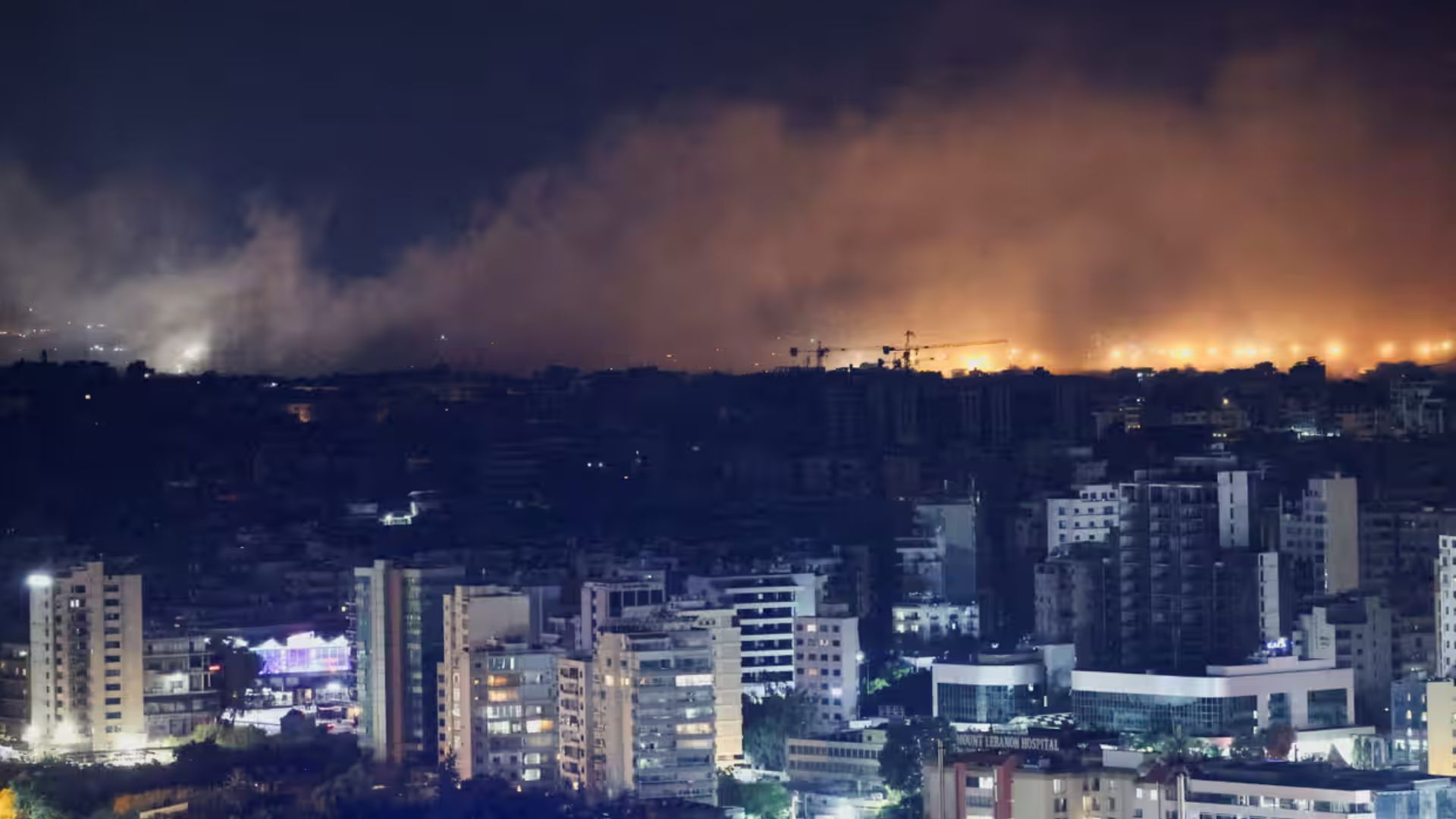On Monday, Israeli armed forces entered southern Lebanon and launched what they called "limited, localized, and targeted ground raids" against the militant organization Hezbollah, which receives support from Iran.
Officials from the United States involved in the planning said that the offensive's goals were to push Hezbollah forces away from the Israeli border and target their infrastructure, which included depots and weapons.
It is anticipated that the offensive will have a restricted timeframe, maybe lasting only a few days instead of weeks, and a restricted geographic reach.
In a statement, the Israel Defense Forces (IDF) said, "The IDF started limited, localized, and targeted ground raids against Hezbollah terrorist targets and infrastructure in southern Lebanon a few hours ago. These raids were based on precise intelligence."
These targets are thought to provide an immediate threat to Israeli residents in northern Israel; they are situated in villages close to the border.
Whether Israel's operation will continue to be restricted in scope is unclear, though.
After intensive talks over the weekend with U.S. officials advocating for a reassessment, Israel chose to scale back the operation from its earlier plans for a wider invasion.
President Biden's persistent calls for a ceasefire are underscored by the Biden administration's anxiety that the mission could grow in spite of the determination to curtail it.
Before Israel's ground operation in May in the southern Gaza city of Rafah, similar assurances were given about the extent of their operations.
Prior to this, President Biden had threatened to withhold arms from Israel in the event that there was a significant ground offensive in Rafah. However, he later clarified that this did not constitute a "red line" because of its narrow strategic emphasis on Hamas.

After that, NBC News reported on the destruction in Rafah, stating that practically all of the town's population had left and the town had turned into a ghost town with destroyed structures.
Since Hezbollah started firing at Israel on October 8 in support of Hamas, which has been at war with Israel since its terrorist attack on October 7, the conflict has gotten worse.
Tens of thousands of people have been forced to flee on both sides of the Israel-Lebanon border as a result of the firefight between Israel and Hezbollah since then.
A new phase of the conflict, with an emphasis on the return of displaced inhabitants to northern Israel, was signaled by Israeli Prime Minister Benjamin Netanyahu.
The sudden explosion of pager devices used by Hezbollah members around Lebanon, which caused damage to homes, grocery stores, and other places, increased tensions.
Israel did not take credit for these explosions, but according to two U.S. officials, it was the cause of the strikes.
The ensuing day saw a similar attack utilizing walkie-talkies, leading to 37 deaths and nearly 3,000 injuries, according to Lebanese health officials.
Days of intense fighting broke out between Israel and Hezbollah as a result of these blasts, with Hassan Nasrallah, the leader of Hezbollah, calling Israel's actions an act of war.
Israel launched significant bombings over southern Lebanon, causing violence to flare up once more and killing almost 500 people, according to the Public Health Ministry of Lebanon.
President Biden has called for a de-escalation in the face of these events as foreign officials attempt to avert a regional conflict in the Middle East that may spiral out of control.
Throughout the week, the U.S. government has been in contact with Israel and Hezbollah in an effort to manage the situation.
The United States, the European Union, and around a dozen other nations issued a united statement demanding a 21-day truce, calling the current state of affairs "intolerable" and emphasizing the possibility of further regional escalation.
"This is in nobody's interest, neither of the people of Israel nor of the people of Lebanon," the statement said, highlighting the necessity of reaching a diplomatic agreement.
Israel said that it was targeting senior Hezbollah leadership, including Nasrallah, who was allegedly killed along with numerous other commanders, by hitting multiple buildings in the southern suburbs of Beirut on Friday.
Before last year, Israel and Lebanon had experienced nearly two decades of peace after decades of strife, during which Israel had carried out multiple military operations.
Hezbollah emerged as a result of Israel's military operations in Lebanon, which started in 1982 and were directed against terrorists affiliated with the Palestine Liberation Organization (PLO).
Hezbollah is financed by Iran and has sworn loyalty to Iran's supreme commander while being listed as a terrorist organization by the United States since 1997.
Even though it is considered a terrorist organization, Hezbollah functions as a political party in Lebanon, holding seats in the legislature and offering social services to its supporters.





























